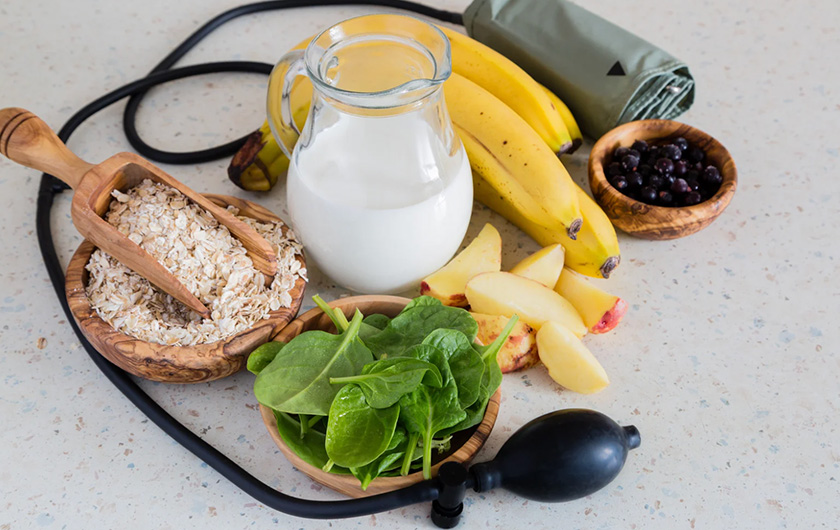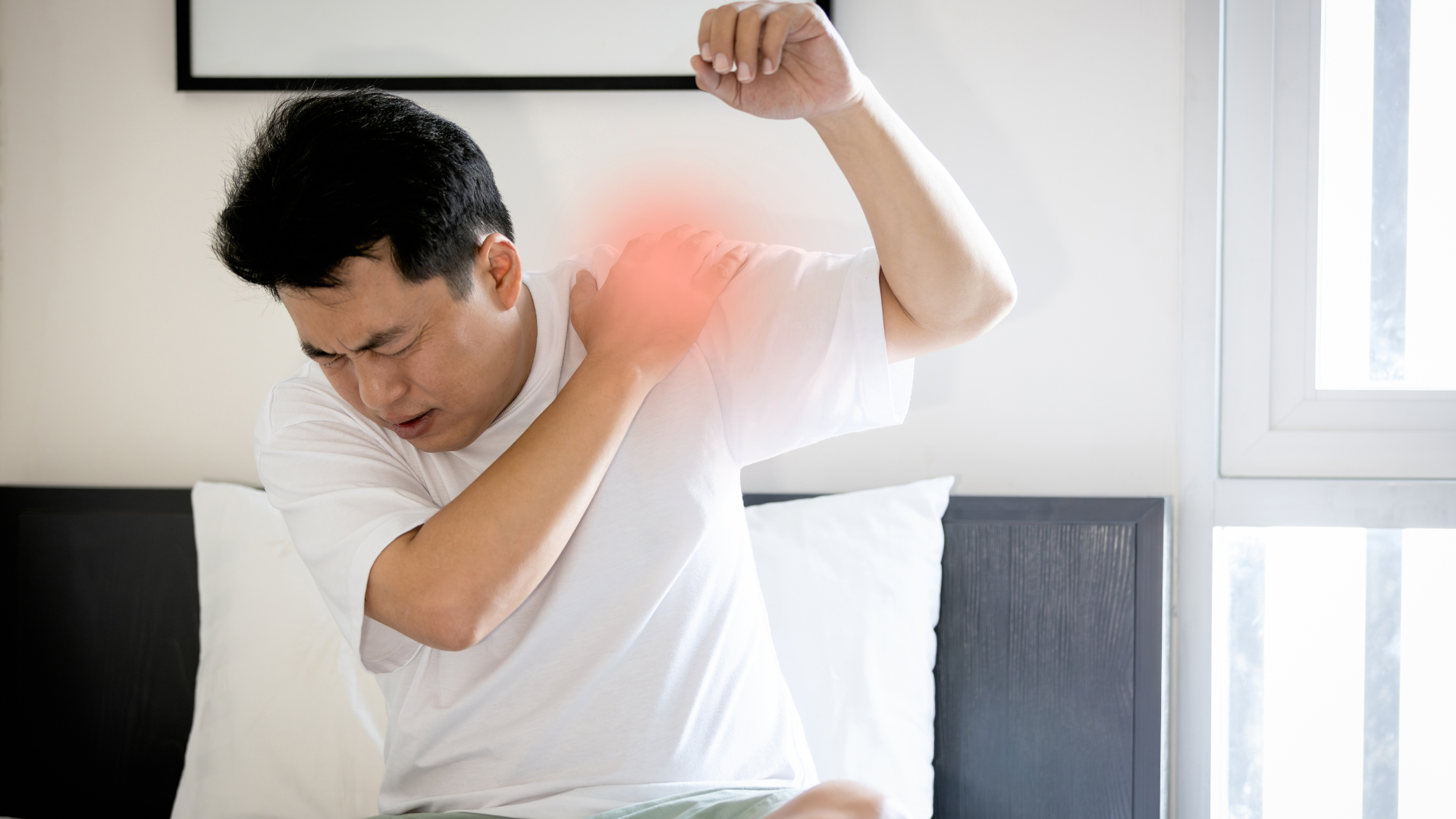
CONTENTS
High blood pressure (hypertension) is a common health concern worldwide. According to the National Population Health Survey 2022, more than one in three adults in Singapore has hypertension, with a notable increase among those aged 50 and above. This condition, which occurs when the force of blood against the walls of your arteries is consistently too high, can cause serious complications such as heart disease, stroke, and kidney damage if left untreated.
However, managing blood pressure through diet and lifestyle changes can significantly reduce these risks and improve overall heart health. This article discusses hypertension, foods to include in your diet, foods to avoid, and how simple lifestyle changes can make a big difference.
How Do I Know If I Have Hypertension?
Regular monitoring of your blood pressure (BP) is the best way to keep track of your health, by using a blood pressure monitor at home. Stay proactive in maintaining your well-being by incorporating regular health screening into your routine.
Individuals should start checking their blood pressure regularly from 18 years old. Those above 40 years old should have their blood pressure measured regularly.
The Role of the DASH Diet in Controlling Hypertension
Diet plays a crucial role in managing high blood pressure and improving heart health. The DASH diet (Dietary Approaches to Stop Hypertension) is a proven approach that focuses on consuming nutrient-rich, heart-healthy foods while limiting those that may contribute to elevated blood pressure. This balanced approach can help reduce sodium levels, control cholesterol, and promote healthy blood circulation.
Heart-Healthy Foods to Lower Blood Pressure
Incorporating the right foods into your diet can help reduce high blood pressure naturally. These foods are rich in essential nutrients that support heart health and improve blood flow.
- Fruits and Vegetables
Fruits and vegetables are full of vitamins and minerals, like potassium, which help reduce blood pressure. Examples include bananas, spinach, and sweet potatoes.
- Whole Grains
Whole grains like brown rice, oats, and quinoa are high in fiber, which helps keep your heart healthy and blood pressure stable.
- Lean Proteins
Chicken, fish, beans, and lentils are good sources of protein that won’t raise your blood pressure. Fish like salmon is especially helpful because it contains omega-3s that are good for the heart.
- Low-Fat Dairy
Low-fat milk, yogurt, and cheese are rich in calcium, which is important for healthy blood pressure. If you’re lactose intolerant, choose dairy alternatives like almond or soy milk.
- Nuts and Seeds
Nuts like almonds and walnuts, as well as seeds, are good for heart health and provide healthy fats and fiber.
Foods to Avoid for High Blood Pressure Management
To manage high blood pressure effectively, it’s essential to limit or avoid certain foods that can contribute to elevated blood pressure. These include foods high in sodium, saturated fats, and sugar.
- Salty Foods
Too much salt raises blood pressure. Avoid processed foods like canned soups, deli meats, and salty snacks.
- Sugary Foods
Sweet treats like cookies, cakes, and candy can lead to weight gain and high blood pressure. Limit how often you eat these.
- Sugary Drinks
Sodas, sweetened coffee, and energy drinks are full of sugar and empty calories. Opt for water or unsweetened drinks.
- Red Meat
Red meat like beef and pork is high in fats and can raise your blood pressure. Choose lean proteins like chicken or plant-based proteins instead.
- Alcohol
Drinking too much alcohol can increase blood pressure. Stick to one drink per day for women and two for men.
- Saturated Fats
Fats found in fatty meats, butter, and full-fat dairy can raise your cholesterol and blood pressure. Limit these foods.
- Processed and Packaged Foods
Many packaged foods are high in salt and unhealthy fats. Stick to whole, fresh foods whenever possible.
- Condiments
Ketchup, mustard, and other sauces can be high in salt and sugar. Use them in moderation or try homemade versions.
- Caffeine
Caffeine can cause a temporary rise in blood pressure. If you’re sensitive to caffeine, try to limit coffee, tea, and energy drinks.
Lifestyle Changes for Effective Blood Pressure Control
In addition to making dietary changes, staying physically active is important for managing high blood pressure. Regular exercise, such as walking, cycling, or swimming, strengthens your heart, improves circulation, and helps lower blood pressure. Aim for at least 30 minutes of moderate exercise on most days of the week.
Managing stress is just as important. Chronic stress can raise blood pressure. Mindfulness, meditation, deep breathing exercises, and getting enough sleep can help reduce stress and keep your blood pressure under control.
When to Consider Medication for High Blood Pressure
While adopting a heart-healthy diet, staying active, and managing stress can significantly help in lowering blood pressure, medications may be recommended if blood pressure remains elevated despite these efforts. In such cases, a suitable medication or combination of medications can help bring it under control and reduce the risk of complications. Regular check-ups will ensure that the treatment plan remains effective and give can be adjusted as needed.
Pharmacotherapy complements lifestyle intervention where appropriate. The initiation of antihypertensive medication is determined by three key factors: blood pressure levels, cardiovascular risk profile, and the presence of comorbidities such as cardiovascular disease (CVD), chronic kidney disease (CKD), diabetes mellitus (DM), or hypertension-mediated organ damage (HMOD).
Although adopting a heart-healthy diet, maintaining physical activity, and practicing stress management can effectively lower blood pressure, pharmacological intervention becomes necessary when these measures prove insufficient to achieve target blood pressure levels.
In certain clinical situations, immediate initiation of antihypertensive therapy is necessary. For instance, patients with a blood pressure of 160/100 mmHg or higher should begin both medication and lifestyle modifications, regardless of their cardiovascular risk.
In these cases, tailored monotherapy or combination therapy can effectively achieve blood pressure control and mitigate complication risks. Ongoing monitoring through regular follow-ups allows for treatment efficacy evaluation and dose regimen adjustments when clinically indicated.
Regarding frequently asked questions from newly diagnosed patients:
“Will I become dependent on blood pressure medications?”
“Do I need lifelong treatment once I start taking them?”
Antihypertensive medications are not addictive. While these medications help regulate blood pressure, stopping them without medical supervision can result in blood pressure rebound. However, with sustained lifestyle changes—including dietary improvements, regular exercise, stress reduction, and weight management—some patients may be able to reduce or even stop their medications. In clinical practice, there are instances where patients have successfully discontinued medications after achieving long-term behavioral changes.
Managing high blood pressure is a marathon. It’s a lifelong commitment. Progressive, sustainable lifestyle adaptations – rather than transient intensive efforts – yield the most durable cardiovascular benefits.
Conclusion
Managing high blood pressure is possible with a balanced approach that includes healthy eating, regular exercise, and stress management. By making smart food choices and avoiding those that raise blood pressure, you can lower the risk of heart disease and other serious health issues. Staying active, reducing stress, and sticking to a healthy lifestyle will help you better control your blood pressure and improve your overall health.
DR+ Medical & Paincare Boon Lay
Led by Dr Rosie Chen, our Boon Lay GP clinic provides family medicine, chronic disease management, general paediatrics, women’s health, dermatology, medical examinations (maid/employment permit/insurance/student pass), minor surgical procedures, health screenings, corporate healthcare & pain treatments.
Address: 221 Boon Lay Pl, #01-240, Singapore 640221
Contact number: +65 6265 5247



